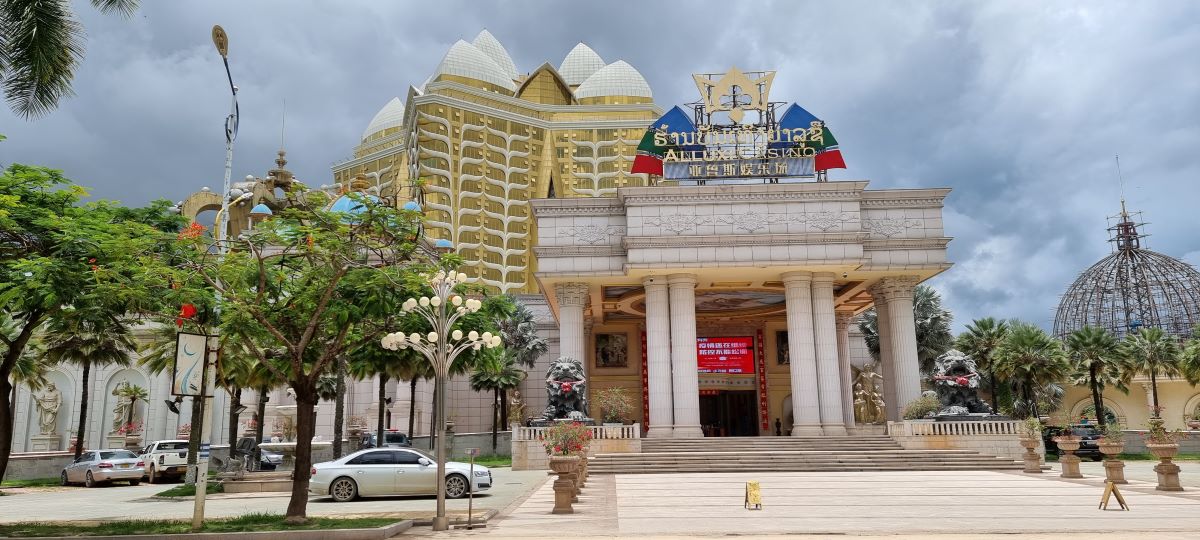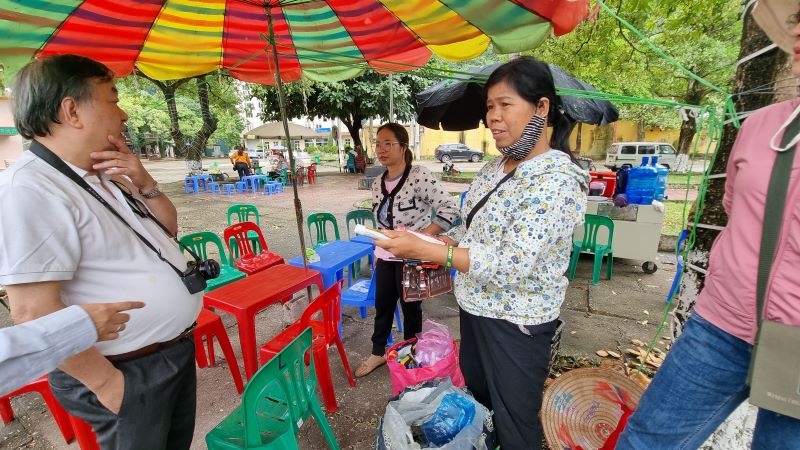成果発信プログラム
「東南アジアにおける中国の一帯一路政策: 概念と方法論」
R6 3-1 (令和6年度 AY2024)
| 研究代表者 | YOS SANTASOMBAT (チェンマイ大学社会科学科 人類学社会学部 /教授) |
| 刊行物の名称 | China’s BRI in Southeast Asia: Concepts and Methodologies |
| 研究課題 | 東南アジアにおける中国の一帯一路政策: 概念と方法論 |
| 研究対象国 | ラオス, マレーシア, タイ, ベトナム, ミャンマー |
刊行物の内容
Preface
Introduction (Yos Santasombat, Kian Cheng LEE, and Decha Tangseefa)
Chapter 1. Anthropology of Regionalization, Multi-sited Ethnography, and Voice Approach in BRI Research (Yos Santasombat and Kian Cheng LEE)
Chapter 2. Making Sense of BRI in Malaysia: Negotiating Volatile Political Situation (Danny Wong Tze Ken)
Chapter 3. Reconceptualizing Mobile Infrastructures and Infrastructural Temporality in the Transnational Cattle Trade (Kengkij Kitirianglarp)
Chapter 4. Chinese loans for infrastructure development? The Narrative of Railways, Highways, and China's Belt and Road Initiative in Vietnam (Nguyễn Văn Chính & Đinh Thị Thanh Huyền)
Chapter 5. Tracks of Change: An Ethnographic Study of China’s Railways in Laos and Thailand (Panitda Saiyarod)
Chapter 6. Shadow Zones: Fraudulent Infrastructure, the Alchemy of Sovereignty, and Destructive Economy in Shwe Kokko SEZ and EEC’s Hinterland (Pinkaew Laungaramsri)
Chapter 7. The Belt and Road Initiative in Myanmar: A Conceptual Review (Ta-Wei Chu)
Chapter 8. The Belt and Road Initiative from the Perspectives of the Political Economy and Business Transnationalism (Hong LIU)
Chapter 9. Maximization the Benefits of the Crowded Field of the Mekong Subregional Cooperation Frameworks Amidst U.S.-China Rivalry: The Conceptual Overview. (Romyen Kosaikanont)
刊行物の目的及び意義
Emerging from an ongoing collective project hosted by the China-Southeast Asian Studies Center, Faculty of Social Sciences, Chiang Mai University in Thailand and gathering essays by a host of Southeast Asian research scholars, the collection aims to unsettle received ideas about China’s Belt and Road initiatives (BRI) by problematizing the existing concepts and approaches to academic works on the subject. China’s transformation into a capitalist world power is one of the defining features of the 21st century. Over the past ten years, our team have carried out four research projects on the expanding economic and political role of China in Southeast Asia. The first project is a contemporary analysis of the Impact of China’s Rise on the Mekong Region (2015). The second project focuses on the history and evolution of Chinese Capitalism in Southeast Asia: Cultures and Practices (2017); The Sociology of Chinese Capitalism in Southeast Asia: Challenges and Prospects (2019). The third project examines contemporary Chinese transnational mobility through ethnographies of mobile Chinese subjects in Malaysia, Singapore, and Thailand, and their interactions with the ethnic Chinese communities in these countries (Transnational Chinese Diaspora in Southeast Asia, 2022). The fourth and ongoing project focuses on the impact of China’s BRI in Southeast Asia. Our research objectives are (1) to assess the impact of China’s BRI megaprojects in Southeast Asian countries with special focus on ethnographic case studies of special economic zones (SEZs) and high-speed train projects, (2) to comparatively examine and critically analyze the risks and benefits stemming from these megaprojects in Southeast Asia, and (3) to disseminate our findings through publications and international seminars on the BRI and to discuss policy implications and recommendations for regional development and balance of power. This book is a first output of our ongoing research project and focuses on concepts and methodologies of BRI’s research. This book offers critical suggestions about certain concepts and methodologies to help with the making sense of China’s BRI and its impact on Southeast Asia. Among other things, this book recommends that China’s BRI should be examined through a variety of perspectives such as transnational political economy, development studies, non-state centricity, state-corporate crime, ontological turn, and geopolitical competition approaches. Second, the method that differentiates our work from other BRI studies is a multi-sited ethnography, the in-depth qualitative process of exploring how people navigate the complexity of making and struggling to maintain ordinary lives in the context of socio-economic, political, and institutional changes brought about by BRI projects. Thirdly, it argues for a research methodology that focuses on the implications of project implementation, the economic and political costs, and benefits of projects on the ground. These foci should lead us to heed the voices and perspectives of the local people.



